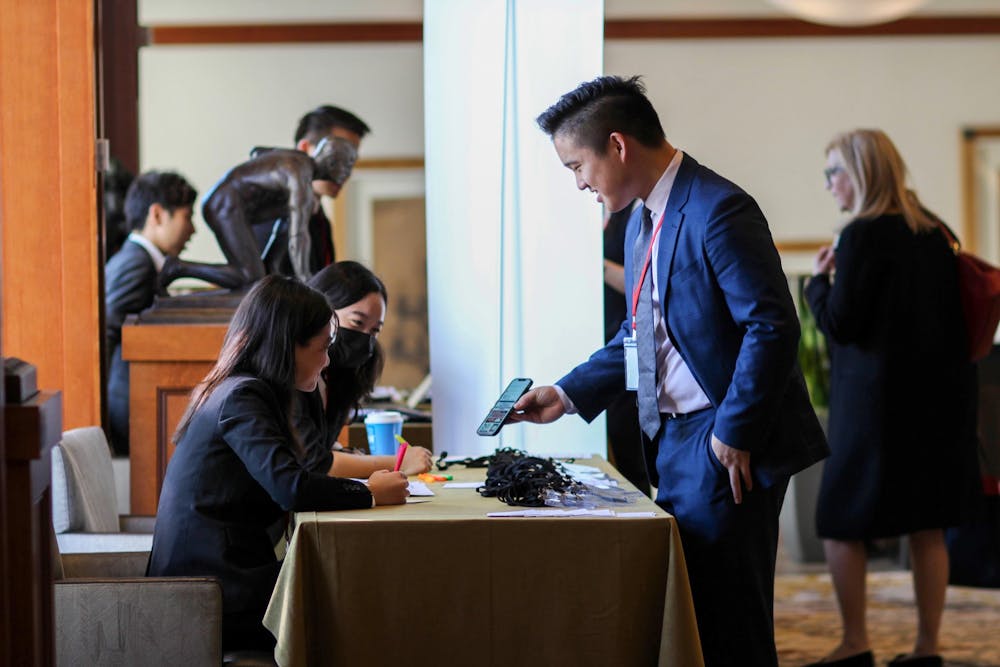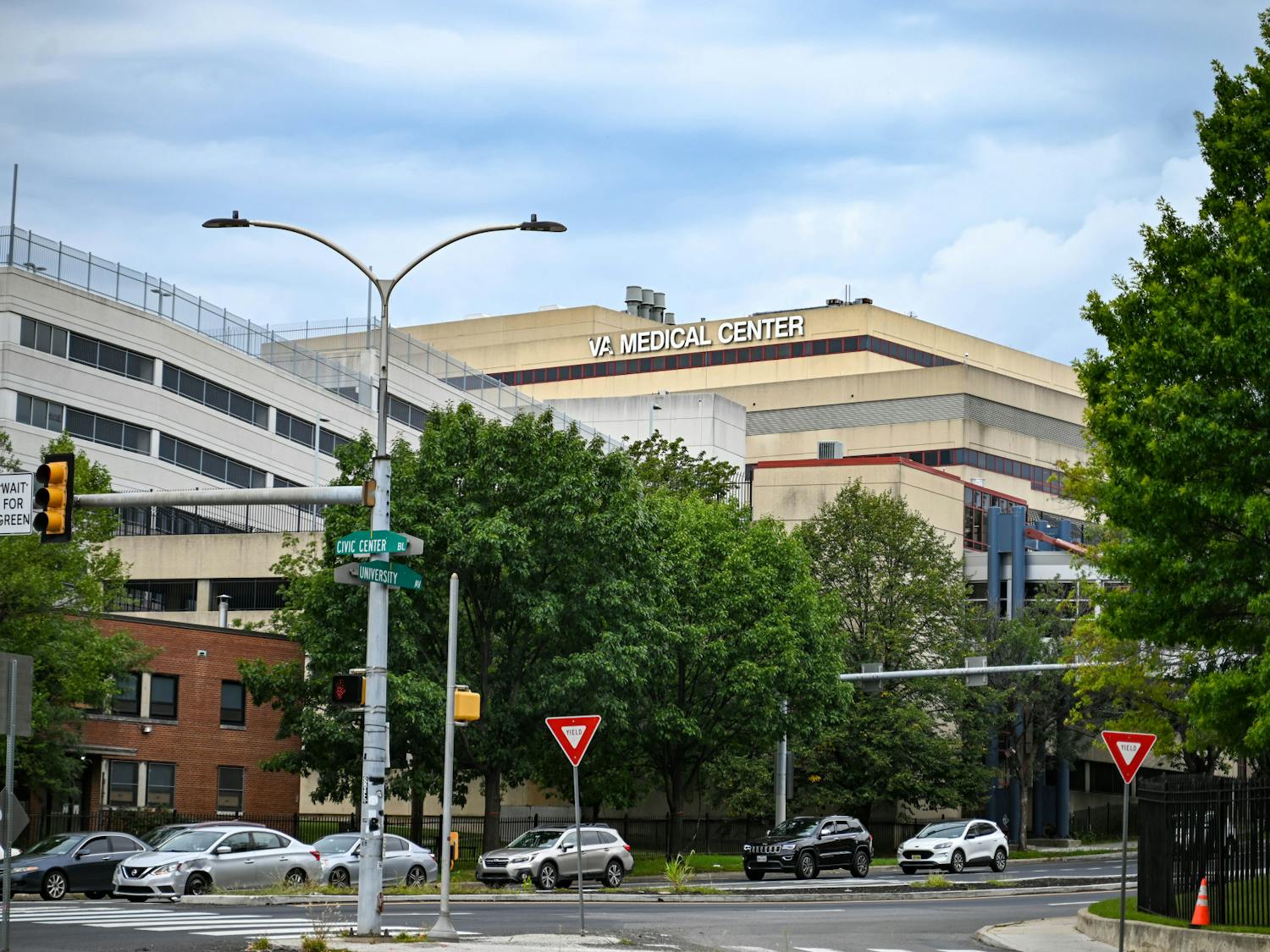Wharton Undergraduate Healthcare Club hosted its annual undergraduate health care conference on Feb. 11 at the Inn at Penn.
The conference, entitled The Future of Healthcare, included talks from two keynote speakers, panel sessions with a diverse group of industry leaders, a career fair, and presentations from the recent WUHC case competition winners. The conference is the largest undergraduate healthcare conference in the nation, with this year's event drawing 150 attendants, including 20 panelists, and it was hosted in person for the first time since 2019.
“The people who attended this conference had the opportunity to learn from actual leaders in the healthcare industry who are trying to inspire change,” Aiden Adams, College senior and co-president of WUHC, said. “I hope that they become inspired to become more involved and incorporate healthcare into whatever their career plans are.”
Saum Sutaria, the CEO of Tenet Health, was the opening keynote speaker. He spoke about the hospital industry and talked about emerging trends, such as telehealth. The closing keynote speaker was Gretchen Berlin, 2006 Nursing and Wharton graduate and senior partner at McKinsey & Company, who spoke about the workforce and health care equity.
The conference also included speakers from leading healthcare companies such as Pfizer and Bristol Myers Squibb.
The conference featured two panel sessions which were each divided into two distinct panels. Attendants could choose which session to attend. Aligning with the conference’s theme, the panel topics were the future of biopharma innovation, the future of health care delivery, the future of health care investing, and the future of health equity. Each panel featured leaders from the respective industry.
“I hope that our members are now empowered to be that next generation of health care leaders who are one day going to be those potentially in charge of reforming the system and addressing the challenges and hurdles that currently plague our system,” College first-year and conference director Corey He said. “I hope that people were able to take away some great inspirations.”
He added that he has been working alongside the WUHC leadership team since October to plan the event.
RELATED:
Wharton Undergraduate Healthcare Conference addresses impact of COVID-19 on health care
Penn Medicine receives four awards for excellent patient experience
One part of the conference included a showcase of the students who participated in WUHC’s case competition, which was focused on addressing the ER boarding crisis, including the overcrowding of the emergency department at hospitals. The two winning WUHC case competition groups presented their proposed solutions at the conference.
The case competition was hosted in collaboration with Penn Medicine. The judges at the conference for the case competition were from Penn Medicine, and they provided feedback to the groups presenting.
“Doing the case competition gave me a better idea of how to problem solve when it comes to health care because it's real patient information, real patients’ lives, and real people that are involved,” Kayla Patel, Engineering sophomore and member of one of the winning case teams said. “It was really cool to take a look at a very pressing real-world issue and try and figure out how to solve it using all of these different backgrounds that me and my group mates have.”
Amishi Mahajan, College sophomore and another member of one of the winning case teams, said that it was important for her group to get feedback from health care professionals in order to understand what it’s like to have to tackle these sorts of problems in the real world.
Isabel Zhang, Wharton senior and co-president of WUHC, said that there was a lot of work to be done when she became a leader of WUHC alongside Adams. She explained that it took a lot of effort to “get the ball rolling” coming out of a few years of subdued club activity due to the COVID-19 pandemic.
“One of our biggest goals was to increase engagement and excitement among undergraduates and then help regain our presence on campus. I think conferences are a really big part of that,” Zhang said.









